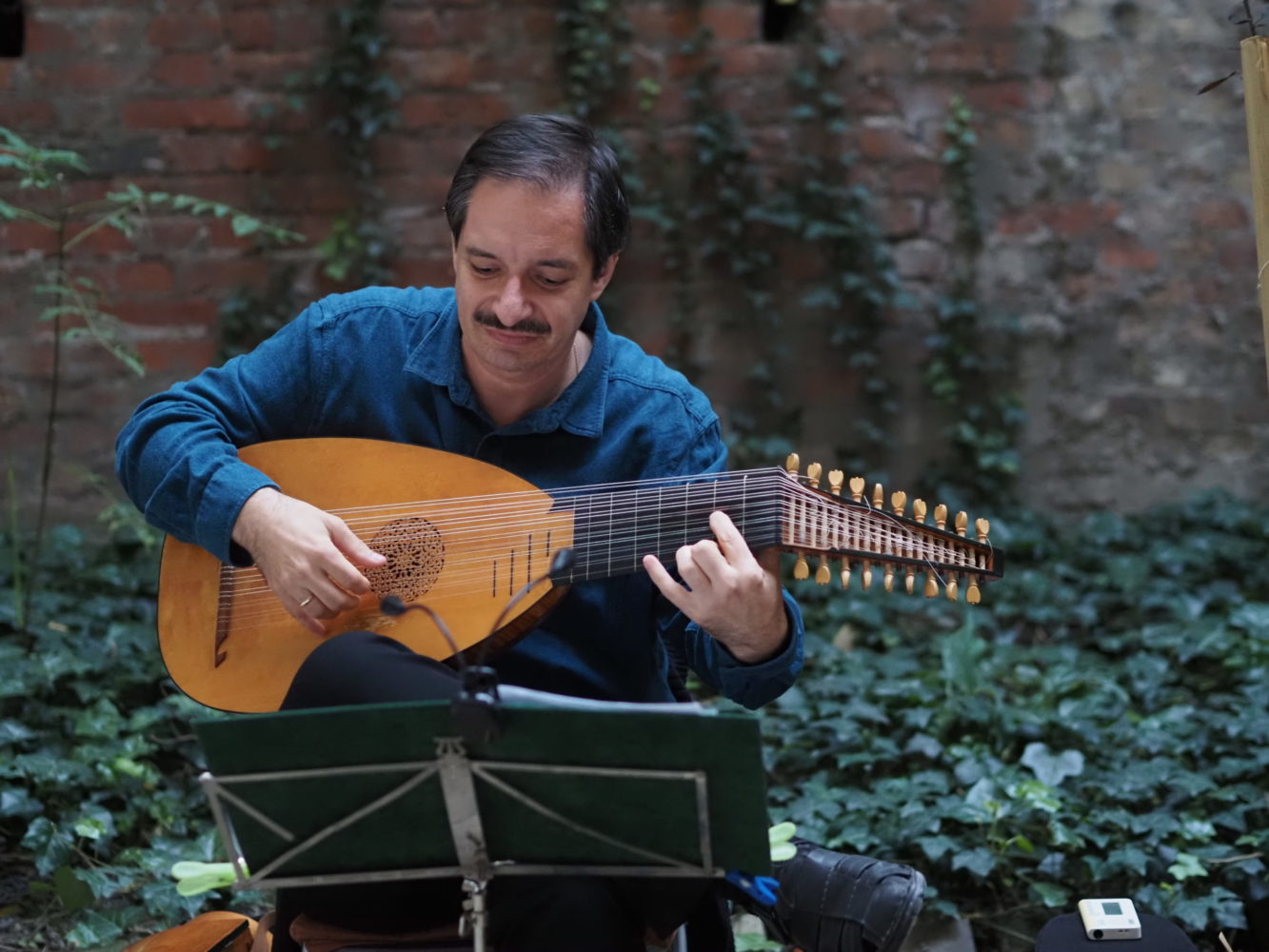Central European music in the Shakespeare period (16th–17th centuries)
Rumen István Csörsz (Budapest)
Renaissance lute, bagpipe, Turkish pipe, recorder, vocal
Rumen István Csörsz (1974) is a Hungarian literary historian and early music performer, leader of the Musica Historica ensemble in Budapest since 1988. He plays Medieval, Renaissance or later early music on string (lute, koboz, oud, guiterne, Baroque and classical guitar etc.), and wind instruments (bagpipe, crumhorns, Turkish pipe, recorders etc.), and sings as well.
His main research fields are the early modern Hungarian popular poetry (17th and 18th c.), manuscripts and chapbooks, the first Hungarian folk songs collections, published critical editions and monographs, and edited ten volumes of the Doromb (Jew’s Harp: Popular Poetry Papers). He had some papers on the International Ballad Conferences (Pécs, Prague, Gjirokastër) too.
His Aylesbury program is a small collection of 16th- and 17th-century Hungarian and Central European music, which was popular in the period of Shakespeare: court and folk dances, Hajdú (freelance cowboys and soldiers) dances, international ‘hits’ of early music, which influenced the Hungarian, Polish and Slovakian Renaissance and early Baroque melodies as well. A song, Praise of the Spring by Bálint Balassi (1554–1594), the famous Hungarian Renaissance poet, will be sung first time in English, translated by Gábor Erdődi.

